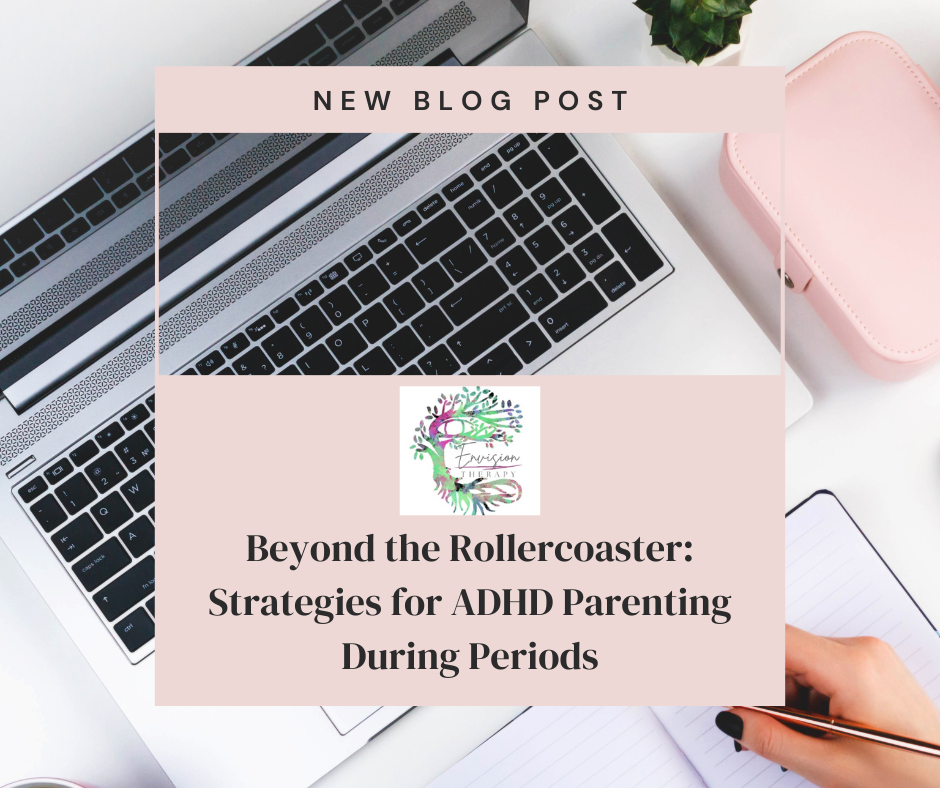ADHD, a neurodevelopmental disorder, often brings challenges to both children and their parents. However, throw hormonal fluctuations into the mix, particularly during a menstrual period, and you might find yourself on a rollercoaster of intensified symptoms. As a parent, understanding the intricacies of how ADHD symptoms increase during your child’s period is crucial for providing effective support.
Navigating the Monthly Rollercoaster: ADHD and Menstruation
Picture this: Your child, who already dances to the beat of their own drum thanks to ADHD, now has to contend with the monthly hormonal symphony of puberty. It’s like trying to ride a unicycle while juggling flaming torches – challenging, unpredictable, and occasionally, a bit of a circus.
The Monthly Hormonal Tango
Hormones play a pivotal role in ADHD symptoms, and during menstruation, they can act as the conductors of a chaotic orchestra. Estrogen and progesterone levels fluctuate, impacting neurotransmitters like dopamine and norepinephrine, crucial for focus and impulse control. As a result, ADHD symptoms may intensify, making the usual challenges of parenting a child with ADHD feel like navigating a ship through stormy seas.
Parents, this is for you
Parents, take a deep breath. You’re not alone in this boat navigating ADHD during menstruation. The struggle is real, but so is your resilience. Let’s dive into some actionable strategies to make this journey a tad smoother.
Understanding the Monthly ADHD Show
As a parent, you’ve probably noticed the ebb and flow of your child’s ADHD symptoms. During their period, it’s not just about managing the usual suspects like forgetfulness or impulsivity; it’s about recognizing that the hormonal tango might amplify these challenges.
ADHD Doesn’t Punch the Clock
ADHD doesn’t adhere to a 9 to 5 schedule, and neither do hormones. So, when your child’s period arrives, be prepared for some extra turbulence. Understanding this universal truth is the first step to navigating the monthly rollercoaster.
Actionable Items: Strategies for Smooth Sailing
- Establish a Supportive Routine: Consistency is key for ADHD management. Create a routine that accommodates the fluctuations in energy and focus during the menstrual cycle.
- Open Communication: Encourage your child to express how they’re feeling. Establishing open lines of communication helps you understand their struggles and provides them with a sense of support.
- Mindful Nutrition: Certain foods can influence mood and focus. Explore a balanced diet that supports brain health, incorporating omega-3 fatty acids, fruits, and vegetables.
- Provide a Safe Space: Hormonal changes may amplify emotions. Ensure your child feels safe expressing their feelings without judgment. A safe space fosters emotional well-being.
- Celebrate Small Wins: ADHD can make progress seem slow, but celebrating small victories boosts confidence. Acknowledge your child’s efforts, especially during challenging times.
Laughter is the Best Medicine
In the world of parenting, a good laugh can be a lifesaver. Embrace the chaos, find the humor in challenging situations, and remember that sometimes, a shared joke can alleviate tension better than any parenting manual.
Speaking the Language of Humor
Ever tried herding cats? Parenting a child with ADHD during their period is a bit like that – unpredictable, sometimes messy, but always an adventure.
Parenting is a Marathon, Not a Sprint
ADHD during menstruation might feel like a sprint, but remember, parenting is a marathon. Pace yourself, stay resilient, and know that you’re building endurance with every twist and turn.
Final Lap: Eight Things to Take Away
- Empathy Matters: Understand that your child is navigating a complex intersection of ADHD and hormones. Approach each challenge with empathy.
- Educate Yourself: Knowledge is power. Learn about ADHD and how hormonal changes can impact symptoms. The more you know, the better equipped you are to support your child.
- Patience is a Virtue: Rome wasn’t built in a day, and neither is progress with ADHD. Patience becomes your greatest ally.
- Celebrate Uniqueness: ADHD brings unique strengths alongside challenges. Celebrate your child’s individuality and foster a positive self-image.
- Professional Support: Consider seeking guidance from healthcare professionals, therapists, or ADHD coaches who specialize in navigating the complexities of ADHD during menstruation.
- Connect with Other Parents: Share experiences with fellow parents facing similar challenges. A supportive community provides valuable insights and emotional relief.
- Self-Care Matters: Don’t forget to take care of yourself. Parenting is a demanding job, and you’re better equipped to support your child when you’re in good mental and physical health.
- Love Conquers All: In the face of challenges, love remains the most potent force. Unconditional love and support create a foundation for your child to thrive.
TLDR:
Parenting a child with ADHD during their period brings unique challenges, but with empathy, humor, and actionable strategies, you can navigate the monthly rollercoaster. Learn to embrace the chaos, celebrate small wins, and remember that love conquers all.

